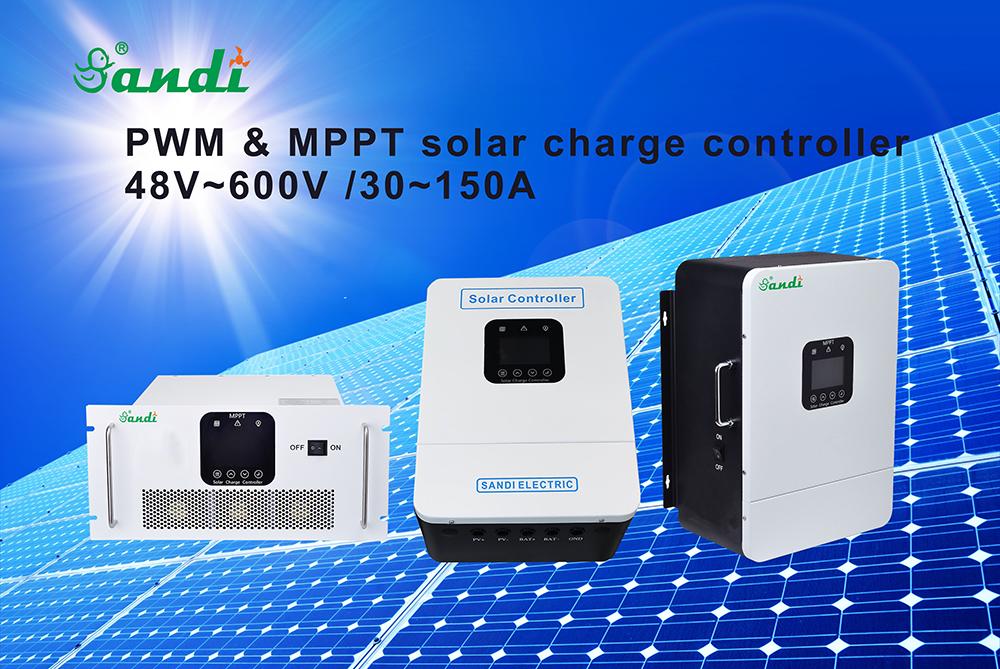This article will introduce the PWM and MPPT solar charge controller working principle in detail.
Firstly:PWM(Pulse Width Modulation)solar charge controller:it is a current control type controller,which will switch the input current of the photovoltaic array in PWM pulse mode.As the battery tends to be full,the width of the pulses will shorten.
Pulse width modulation (PWM) refers to the digital output of the microprocessor to control the analog circuit, which is a digital coding method for the analog signal level. The cost and power consumption of the system can be greatly reduced by controlling analog circuits digitally. Many microcontrollers contain PWM controllers.
The characteristic of sine wave pulse width modulation is that the output pulse width column is unequal, the width changes according to the sine law, and the output waveform is close to the sine wave. Sine wave pulse width modulation is also called SPWM. The key of this technology is to generate the pulse width according to the control signal.
Through the above introduction, we must have a clear understanding of the pwm charge controller working principle. In this part, we mainly want to understand the mppt working principle.
Secondly:MPPT(Maximum Power Point Tracking)solar charge controller:Multiply the voltage U and current I of the solar cell to obtain the power P,and then judge whether the output power of the solar cell reaches the maximum at this time,if it is not running at the maximum power point,adjust the pulse width,Modulate the output duty cycle D,change the charging current,conduct real-time sampling again,and make a judgment on whether to change the duty cycle.
Through this optimization process,the solar cell can always run at the maximum power point,so as to make full use of the solar cell array output energy.
The MPPT controller has designed a device that can perform intelligent calculation and implement tracking at any time to realize real-time monitoring of the generation voltage of the solar panel and tracking the highest voltage and current value (VI). By outputting the highest point of electrical energy, the system can charge the battery with the highest efficiency.
After understanding the mppt charge controller working principle, we should also understand the difference between PWM and MPPT solar charge controller working principle.
In the off grid solar system, the solar charge controller used to protect the battery from overcharge and overdischarge and prolong the battery life is indispensable. After years of development, the technology of pulse width modulation (PWM) charge controller has been very mature. However, we found that in actual cases, the power generation of solar power stations after operation is often lower than the original design value, which not only causes waste of the system, but also brings a lot of inconvenience to the application.
But MPPT charge controller can solve this problem. It can improve the power generation without increasing the system cost. Moreover, the operating parameters of the MPPT charge controller change according to the changes of solar radiation, ambient temperature and humidity. It makes full use of solar energy to avoid waste.
Under the same conditions,the power generation efficiency of the MPPT solar controller is about 20% higher than the PWM solar controller.In the system of PWM controller application,the lower the voltage of the pv array, the better on the premise that the charging can be satisfied,because in this way,the pv power generation will be higher.
Although you already understand the PWM and MPPT working principle, which controller should you choose to match your solar power system? This requires matching high-quality solar controllers according to your specific power consumption. Sandi Electric,have been a professional manufacturer and supplier of solar controllers with 30A-150A for 16 years. If you have any questions about the needs and technology of the solar controller, Please feel free to contact us.

